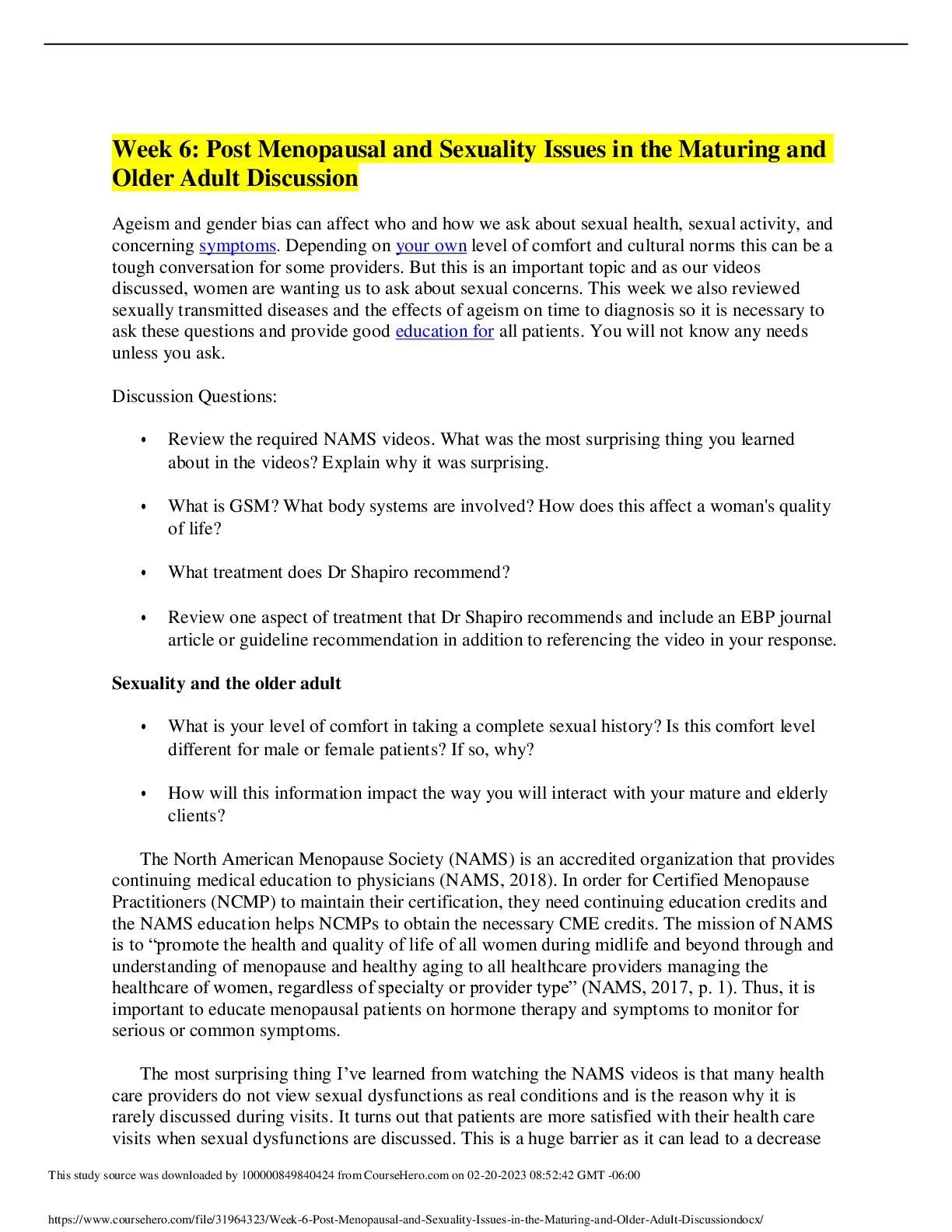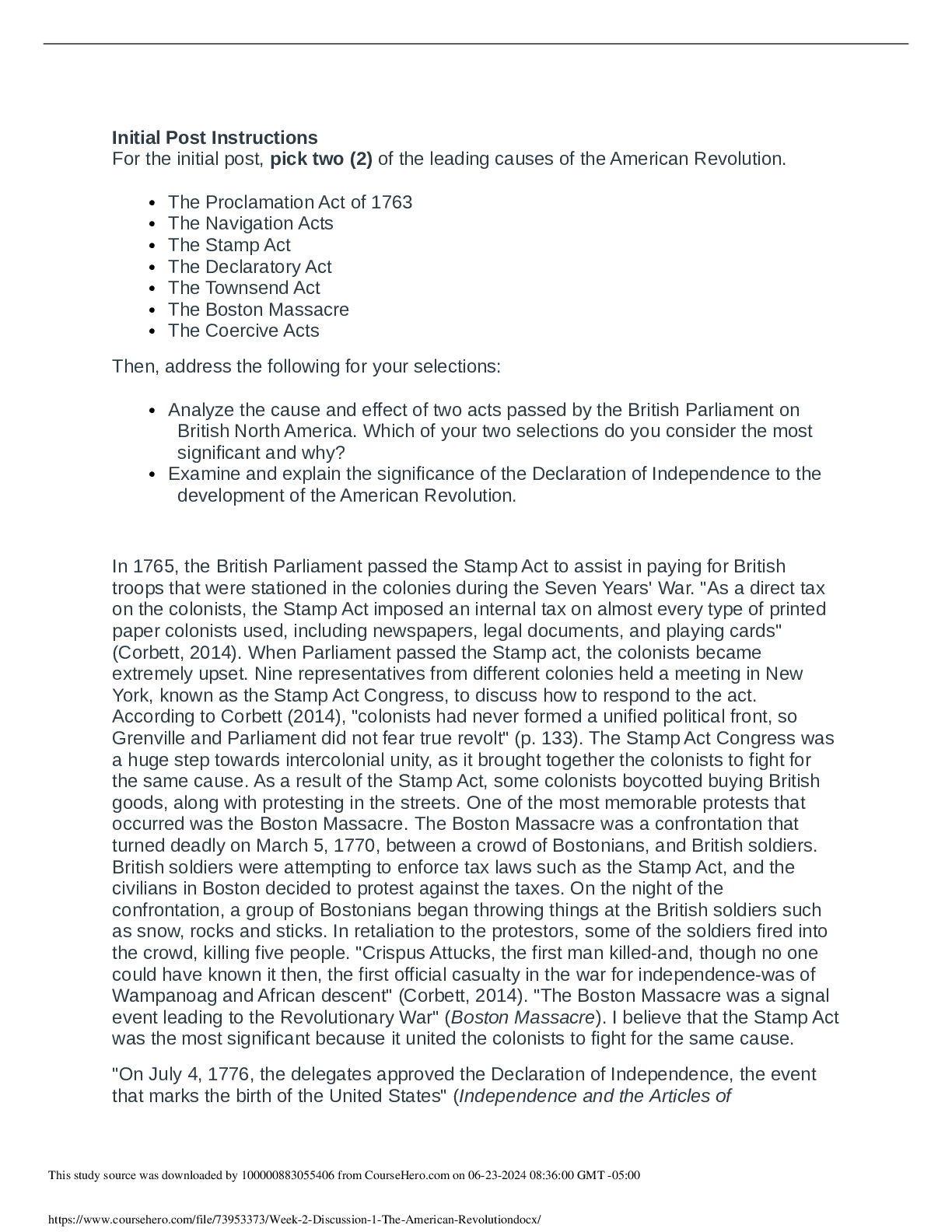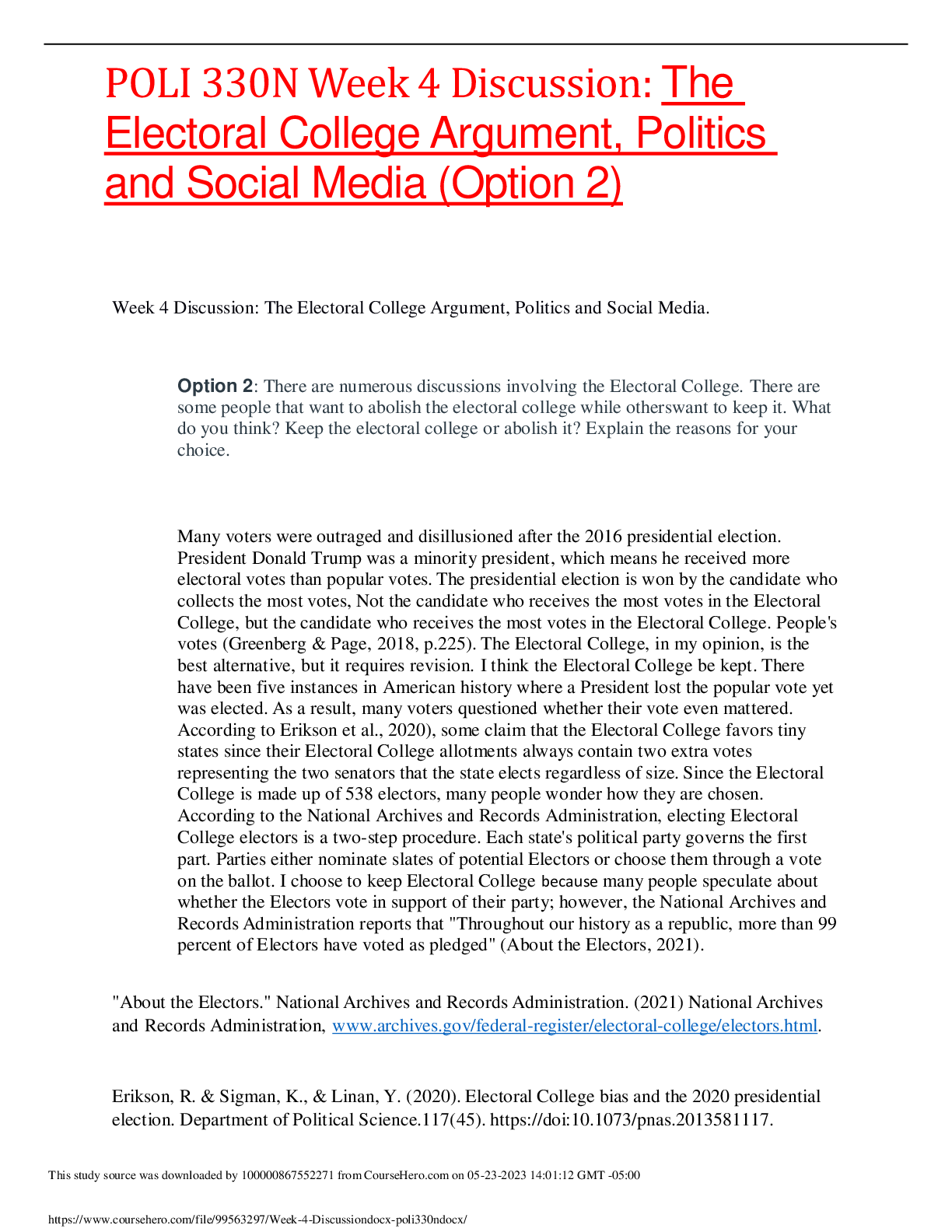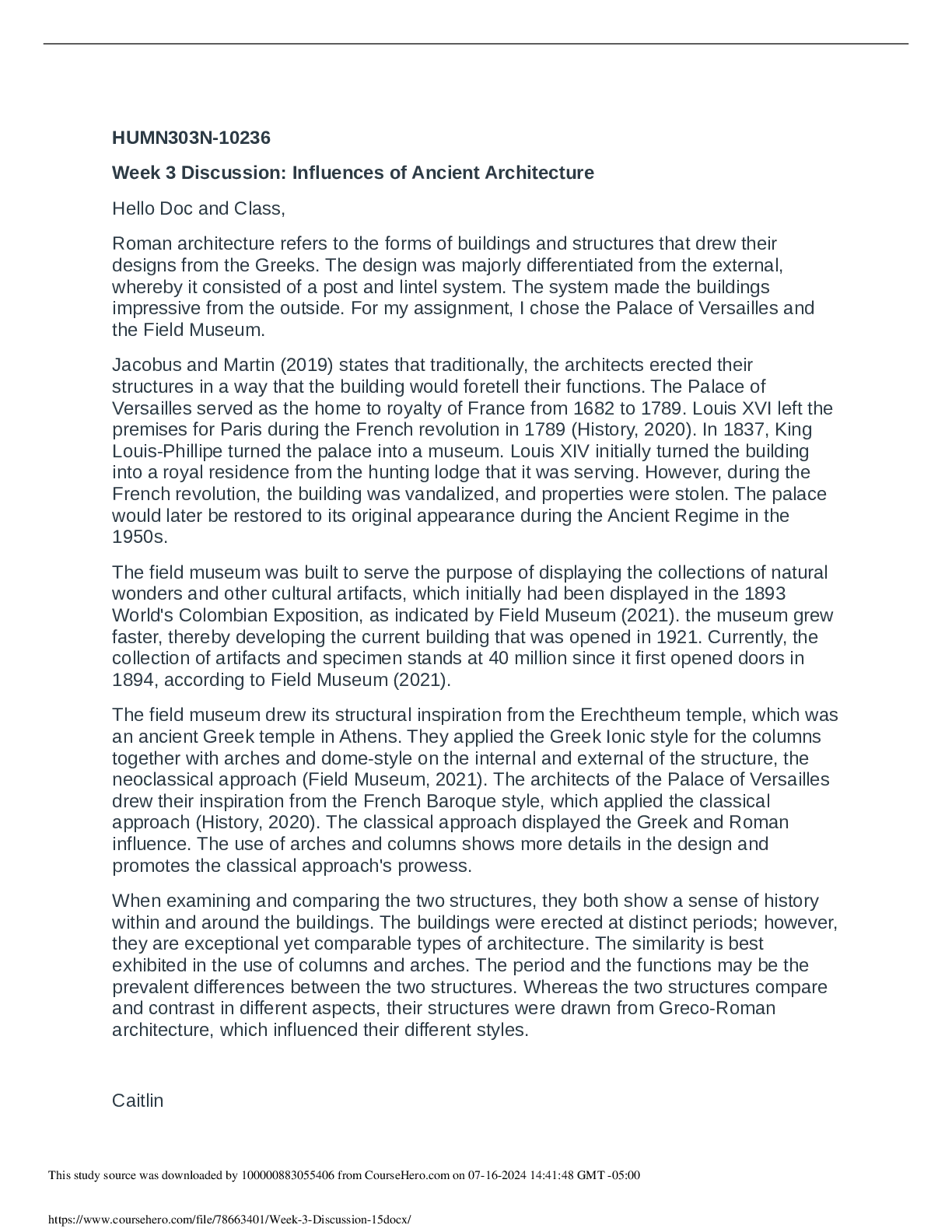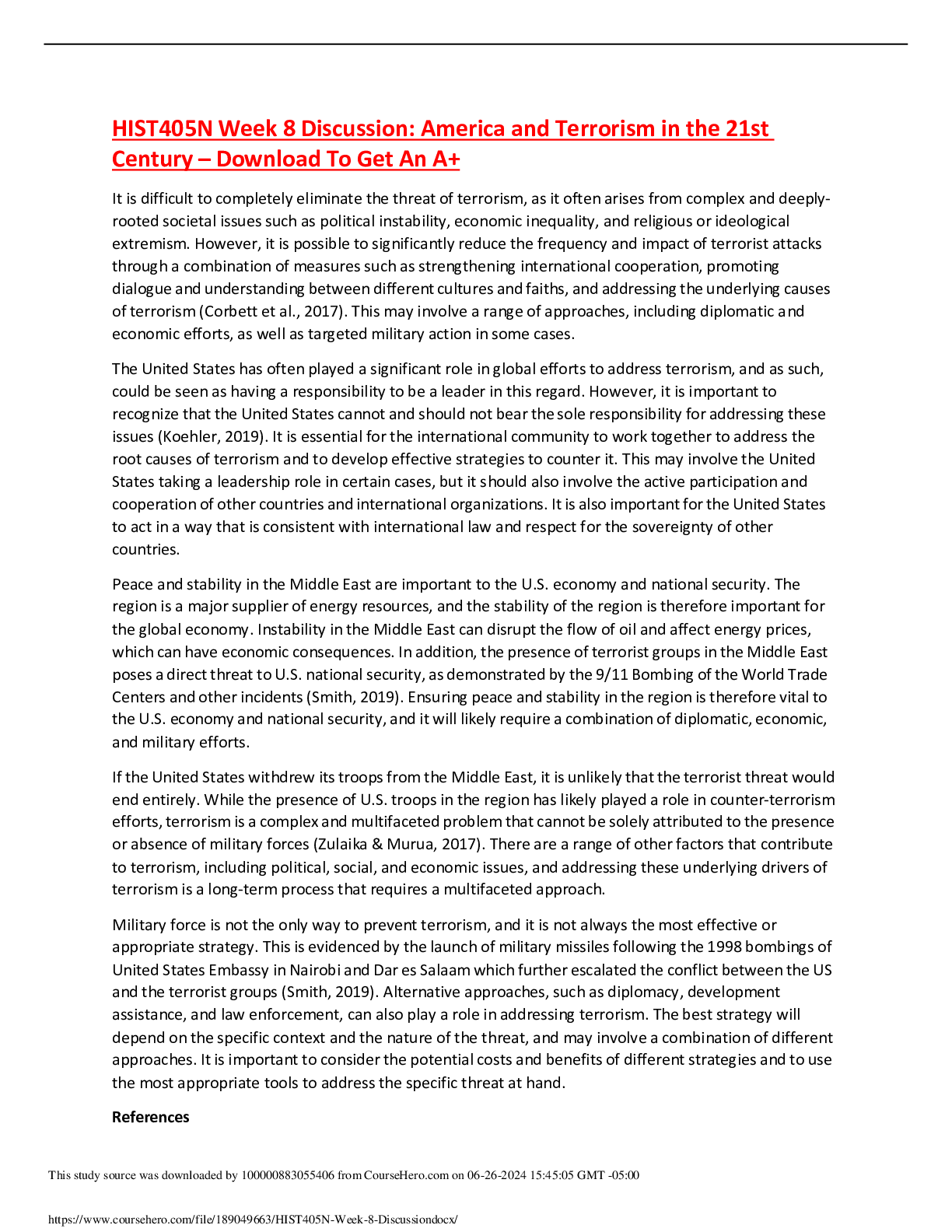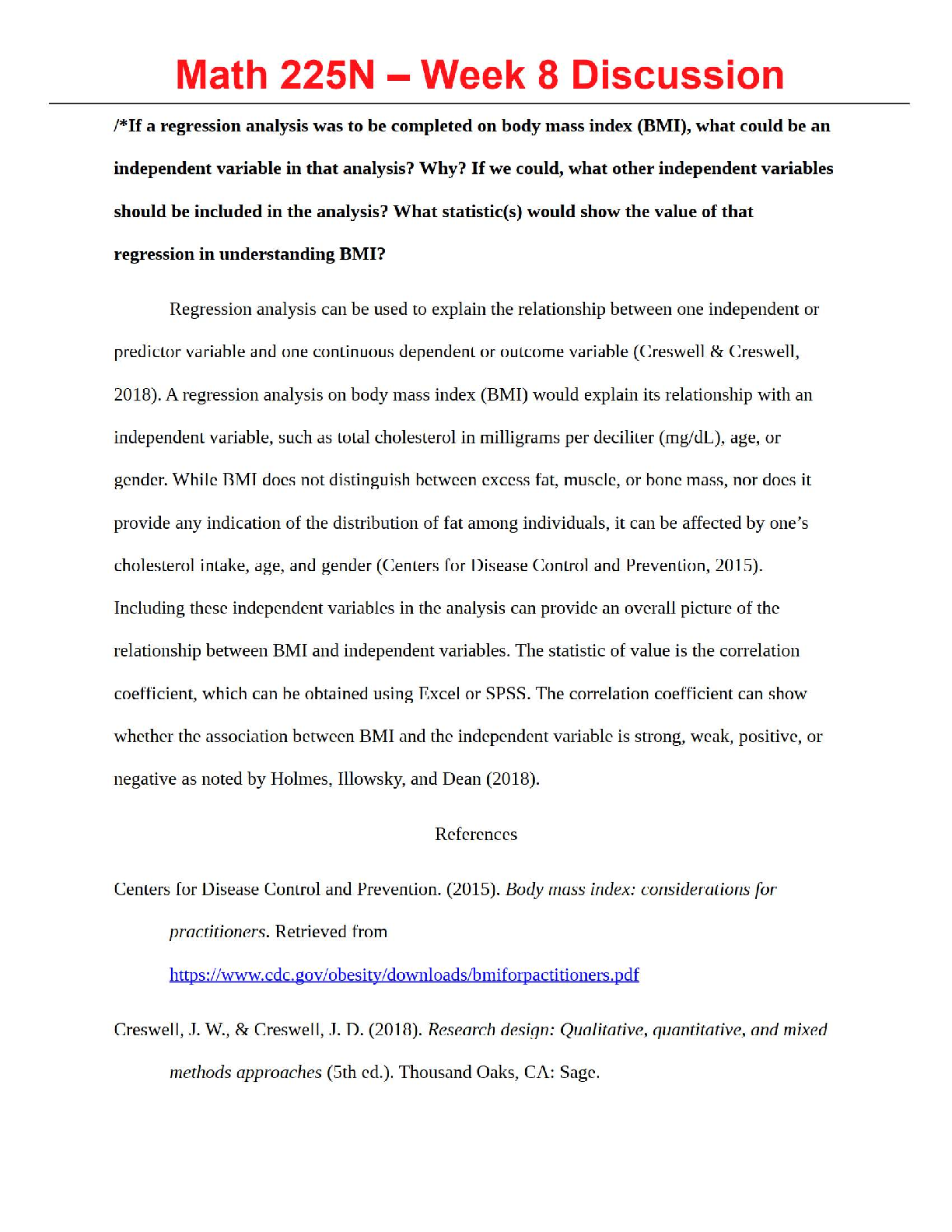NR 601 Week 6: Post Menopausal and Sexuality Issues in the Maturing and Older Adult Discussion
Document Content and Description Below
Ageism and gender bias can affect who and how we ask about sexual health, sexual activity, and concerning symptoms. Depending on your own level of comfort and cultural norms this can be a tough conver
...
sation for some providers. But this is an important topic and as our videos discussed, women are wanting us to ask about sexual concerns. This week we also reviewed sexually transmitted diseases and the effects of ageism on time to diagnosis so it is necessary to ask these questions and provide good education for all patients. You will not know any needs unless you ask.
Discussion Questions:
• Review the required NAMS videos. What was the most surprising thing you learned about in the videos? Explain why it was surprising.
• What is GSM? What body systems are involved? How does this affect a woman's quality of life?
• What treatment does Dr Shapiro recommend?
• Review one aspect of treatment that Dr Shapiro recommends and include an EBP journal article or guideline recommendation in addition to referencing the video in your response.
Sexuality and the older adult
• What is your level of comfort in taking a complete sexual history? Is this comfort level different for male or female patients? If so, why?
• How will this information impact the way you will interact with your mature and elderly clients?
The North American Menopause Society (NAMS) is an accredited organization that provides continuing medical education to physicians (NAMS, 2018). In order for Certified Menopause Practitioners (NCMP) to maintain their certification, they need continuing education credits and the NAMS education helps NCMPs to obtain the necessary CME credits. The mission of NAMS is to “promote the health and quality of life of all women during midlife and beyond through and understanding of menopause and healthy aging to all healthcare providers managing the healthcare of women, regardless of specialty or provider type” (NAMS, 2017, p. 1). Thus, it is important to educate menopausal patients on hormone therapy and symptoms to monitor for serious or common symptoms.
The most surprising thing I’ve learned from watching the NAMS videos is that many health care providers do not view sexual dysfunctions as real conditions and is the reason why it is rarely discussed during visits. It turns out that patients are more satisfied with their health care visits when sexual dysfunctions are discussed. This is a huge barrier as it can lead to a decrease
in quality of life and can lead to psychological issues, such as depression, anxiety, and stress. It is a surprise to me because sexual intercourse is a common part of life, as it is an important facet of life according to Erikson’s stage theory. This highlights the intimacy vs isolation stage in Erikson theory. Intimacy helps people connect with one another, in a positive way, along with creating happiness and a sense of wellbeing. Sexual dysfunctions can hinder this aspect of life and cause people to be unhappy, with the possibility of experiencing depression, anxiety, or stress.
Additionally, it is our duty to as health care professional to inquire, treat, and manage patients’ healthcare needs to provide them with a better quality of life. This include inquiring about their sexual wellbeing. Patients may be too embarrassed to talk about sexual dysfunctions and health care professionals will never know if they do not indulge in positive dialect to get patients to open up about their sexual dysfunctions or discomforts. Through my experience and education, we are taught to discuss matters such as these, because not only do patients have sexual dysfunctions, but they may have been exposed to risky sexual behaviors that may put themselves, their partners, or others at risk for STDs, HIV, or AIDs.
GSM stands for genitourinary syndrome of menopause. The body systems that are involved are vulva, vagina, and lower urinary tract and includes genital symptoms, such as dryness, burning, and irritation. It also includes “sexual symptoms (lack of lubrication, discomfort, or pain, and impaired function), but also urinary symptoms (urgency, dysuria, and recurrent urinary tract infections” (Kim, et al., 2015, p. 65). GSM was formally termed vulvovaginal atrophy and atrophic vaginitis but now are considered inadequate for grouping signs and symptoms associated with the genitourinary system after menopause.
GSM affects women’s quality of life, as it decreases circulating estrogen levels causing anatomic and histologic changes to female tissues, such as thinning of the epithelium, changes in function of smooth muscle cells, and increasing density of connective tissue, resulting in fewer blood vessels (Kim, et al., 2015). As a result of this, there are changes in vaginal pH, vaginal flora, diminishing lubrication, and increasing vulnerability to physical irritation and trauma.
These vaginal discomforts impact women’s sexual functions negatively, which cause women to have a lack of desire, arousal difficulties, and orgasm difficulties. These causes can also cause dysuria, urgency, frequency, nocturia, urinary incontinence, and reoccurring UTIs.
Treatments consist of trying nonpharmacological therapies for three months, and if no improvements, then pharmacological therapies can be incorporated. The treatment goal is to releave the symptoms. Moisturizers and lubricants can be used first, then low dose vaginal estrogen therapy can be initiated. Hormonal therapy would include the use of estrogen only or estrogen and progestogen (Kim, et al., 2015). Dr Shapiro recommends Prasterone, which is not estrogen base and does not have a black box warning. Prasterone or Dehyroepiandrosterone (DHEA) is synthesized from cholesterol from the adrenal gland. It is converted to estrogens and testosterone through steroidogenic enzymes expressed in peripheral tissues such as skeleton, breasts, and ovary (Scheffer, Armstrong, Cantineau, Farquhar, Jordan, 2014). DHEA works by increasing estrogen and testosterone levels in peri and postmenopausal women to prevent their symptoms and provide a better quality of life.
I would say that there is a difference in terms of questioning a male vs. female about his or her sexual history and I feel it may be just as uncomfortable for the patients. It could be that I haven’t been practicing as a student nurse practitioner all that long and it may be more comfortable with the more experience I have. Aside from discussing sexual history with the more experience I obtain, there still may always be some level of discomfort. For me, it is easier to discuss sexual history with older patients then it is with younger patients. With younger patients, I view them as a similar age as me and I feel it may be more uncomfortable for them, which then it makes it more uncomfortable for me.
This information will impact my interaction with mature and elderly clients in a positive manner. Through learning more information about menopause and treatments to help alleviate symptoms of menopause, I will be able to focus on treatment plans to help my patients, thus thinking less about the uncomfortableness. Moving forward, I will work on my personal weakness in discussing certain medical information with my patients. Educating myself and learning through future courses, I will be more confident in discussing sexual history with my patients.
References
Kim, H.-K., Kang, S.-Y., Chung, Y.-J., Kim, J.-H., & Kim, M.-R. (2015). The recent review of the genitourinary syndrome of menopause. Journal of Menopausal Medicine, 21(2), 65– 71. http://doi.org/10.6118/jmm.2015.21.2.65
Scheffers, C., Armstrong, S., Cantineau, A., Farquhar, C., & Jordan, V. (2014).
Dehydroepiandrosterone for menopausal women. Cochrane Database of Systematic Reviews, (1), 1-121. doi:10.1002/14651858.CD011066
The North America Menopause Society. (2017). CME Mission Statement. 1-1. Retrieved from http://www.menopause.org/docs/default-source/professional/nams-cme-mission- statement.pdf?sfvrsn=2
The North America Menopause Society. (2018). NAMS CME. Retrieved from http://www.menopause.org/for-professionals/nams-cme
[Show More]
Last updated: 2 years ago
Preview 1 out of 3 pages
.png)
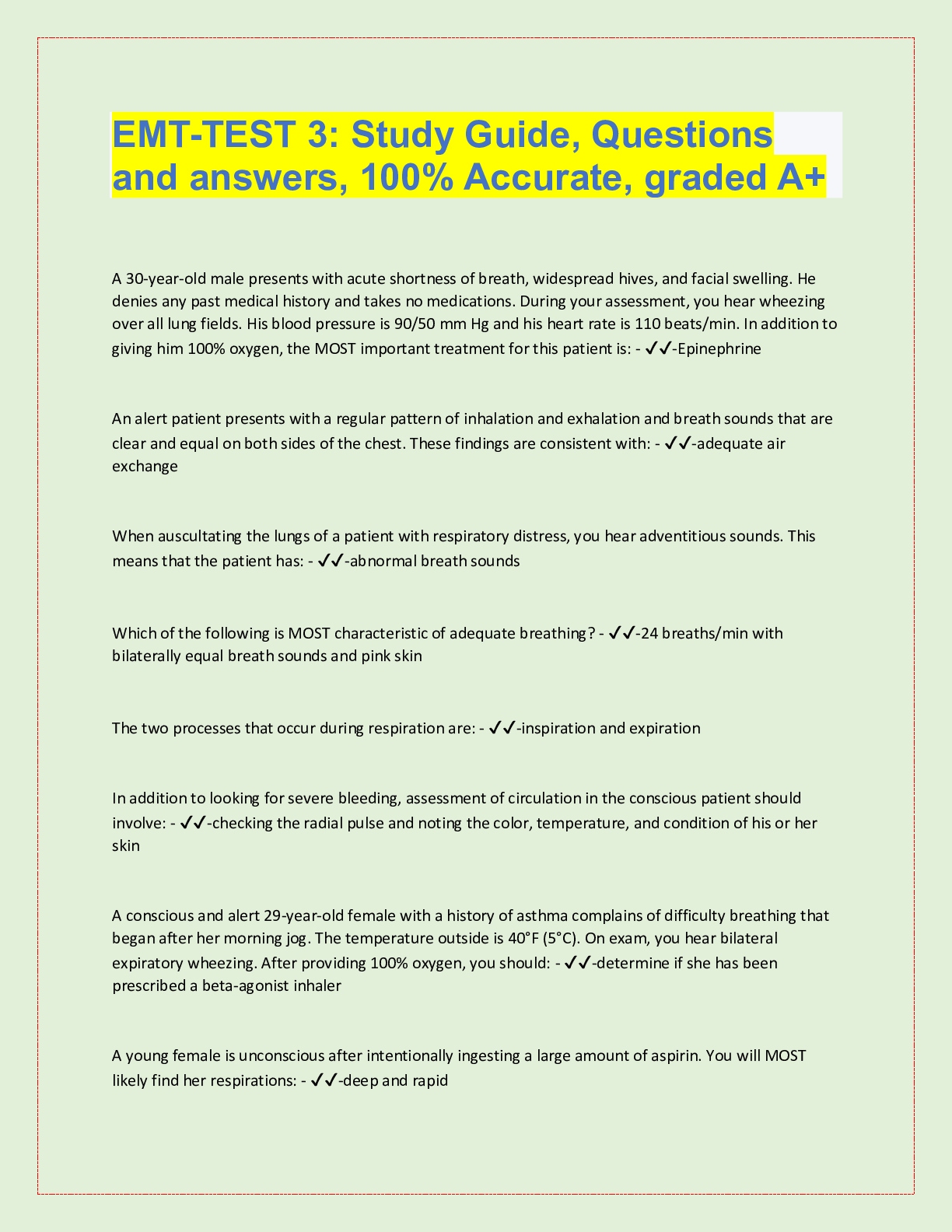

.png)
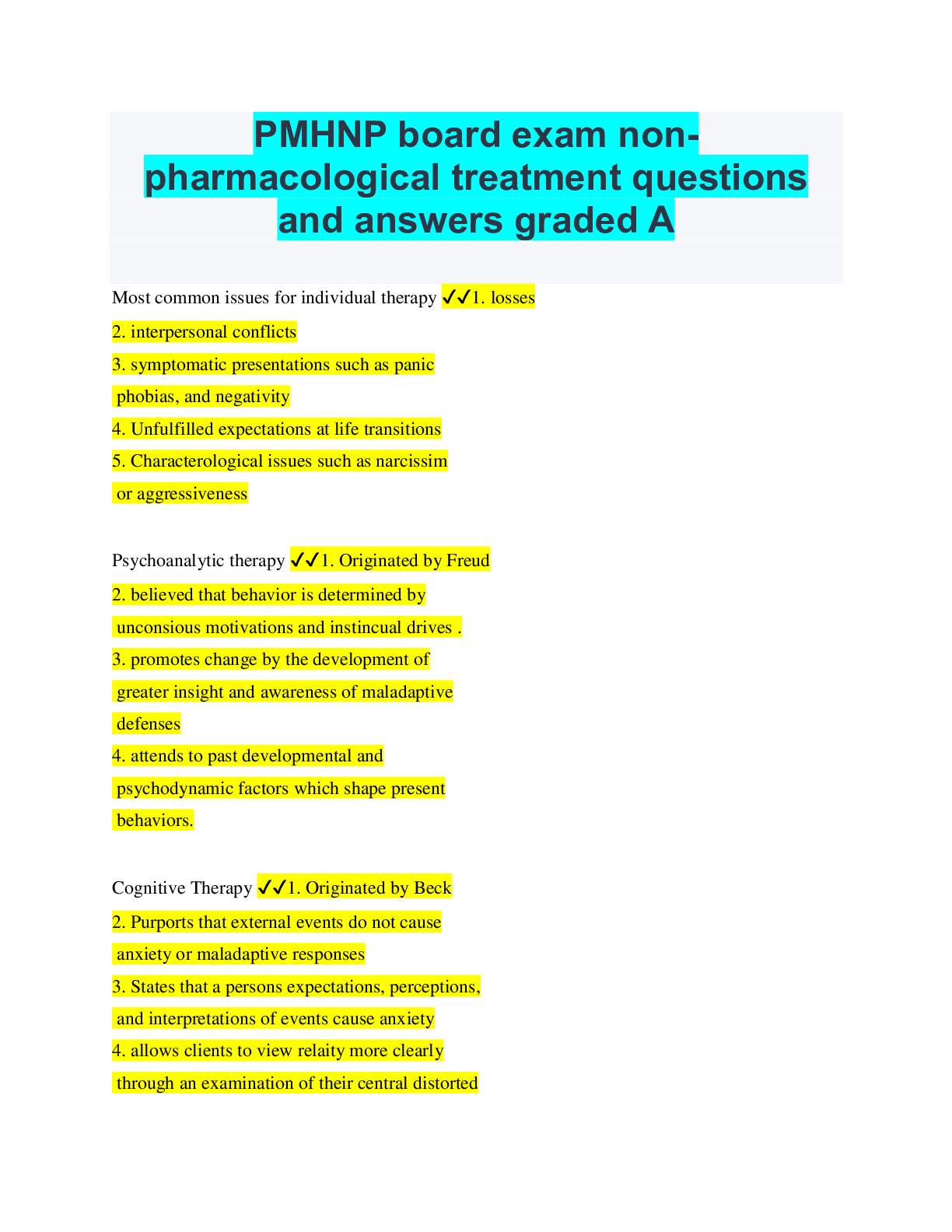





.png)
.png)





